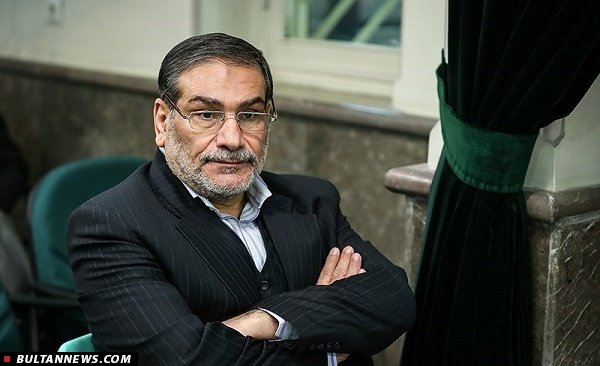Shamkhani says Tehran open to talks with ‘irrational’ Saudis

TEHRAN – Supreme National Security Council Secretary Ali Shamkhani has said Tehran is ready to open talks with Riyadh though Saudis have been behaving “irrationally” all along.
Relationship between Iran and Saudi Arabia has been strained for the past years over a number of issues, particularly over Syria where the two back opposing sides in the now five-year conflict.
“We shut the door of dialogue with no country except the occupying regime of Israel. Even with the U.S., we held talks…,” said Shamkhani in an interview with Russia Today.
Their long-troubled relationship deteriorated when Saudi Arabia executed a top Saudi Shiite cleric in January, apparently incensed by Iran’s deal with the West over its nuclear progrShamkhani says, “Many came to us for mediation to trigger talks with Saudis. Some countries in good terms with Saudi Arabia, including regional, Islamic, and non-Islamic states, felt they could intervene to kick-start negotiations between Iran and Saudi Arabia. But, Saudis disagreed with the mediatory initiatives by the countries.” am.
In retaliation, after an Iranian mob attacked Saudi’s diplomatic posts in Tehran and Mashhad, Riyadh cut diplomatic ties with Tehran.
Ever since then there has been no direct or indirect diplomatic contacts, albeit international mediation.
“Many came to us for mediation to trigger talks with Saudis. Some countries in good terms with Saudi Arabia, including regional, Islamic, and non-Islamic states, felt they could intervene to kick-start negotiations between Iran and Saudi Arabia. But, Saudis disagreed with the mediatory initiatives by the countries,” explained Shamkhani.
What has made Tehran’s overtures fall on deaf ears, is what Shamkhani characterized as “irrational performance of Saudis.”
“Currently, there are no negotiations between Saudis and us. We only trade opposing remarks. We see Saudis acting irrationally. They have started a media hype against us and keep accusing us.”
This is while a political conduit between the two Middle East powerhouses, even one of limited scope, could work toward easing tensions in Syria, Iraq, and Bahrain, all Islamic countries torn apart by conflicts.
“Capacities of the Islamic world should be directed at resolving the principal problems the Islamic world is wrestling with, but these capacities are partially being employed to form Takfiri groups, which breed bloody divisions and escalate tensions,” Shamkhani maintained.
Against the complicated background, the prospect of an immediate reconciliation is too distant. However, there are possible points of departure for a less strained relationship, as referred to by the Iranian official, where Saudi Arabia can take the first steps.
“Saudi Arabia’s embassies across the world are propagandizing against us (Iran). They are making attempts to breed insecurity across the Iranian borders and have allied with anti-Revolutionary and terrorists. Saudis didn’t apologize for the Mina tragedy.”
With all these challenges, it remains to be seen how Riyadh will react to Tehran’s reconciliatory initiative now that Russia, Iran, and Turkey have formed a troika to fight terrorism and extremism.
AK/NA
Leave a Comment